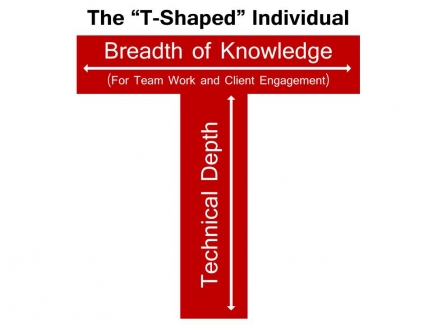|
Some individuals get hired because they have special language skills or experience in a particular industry. However, there are certain qualities that are generally important to many employers and these are the focus of this section.
Companies and other organizations seek to hire “professional engineers.” In this case we are not limiting our discussion to “licensed professional engineers” but are talking more broadly about all degreed engineers with professional skills, behaviors and attitudes. We are simply saying that companies want engineers with engineering knowledge and skills, and professional skills, behaviors and attitudes.
The college of engineering conducted an exercise involving many of its employers that was aimed at identifying core engineering competencies. These are the knowledge, skills, behaviors and attitudes that all employers generally want to see in their engineers. The table below lists the top fifteen competencies that were identified. Further clues regarding skills employers might be looking for can be found by carefully reading their job descriptions.
The engineering curriculum at Iowa State University was developed, and is continuously being improved, to provide students with the competencies that employers want to see in graduates. Coursework, co-ops, internships, student organization projects and other activities all provide opportunities to develop engineering competencies and professional skills. Since many students and graduates complete similar coursework, companies largely differentiate candidates for employment based on their amount and depth of professional experiences outside the classroom. These experiences result in the practice of engineering and professional skills, and employers value these almost as much as good grades.
Grades
Good grades are important. They indicate that you have the ability to learn and have mastered certain skills. There is a fairly strong linear correlation between grade point average and placement at graduation. Additionally, your GPA at graduation will likely affect your starting salary, so there is good incentive to do your best. However, a high GPA alone is not sufficient; straight “A” students have difficulty securing employment when this is all they have to put on their resumes. Many entry level job postings require applicants to have at least a 3.0 GPA, and there are about half as many job opportunities available to those that have a GPA below 3.0.
Work Experiences
In addition to good grades, employers want to see work experiences — especially professional work experiences, such as co-ops and internships. Co-ops and internships are professional positions where the employer has agreed to make it a learning experience and help you develop workplace skills as you complete engineering tasks.
Soft Skills (Teamwork, Leadership, etc.)
Employers also value active participation in student organizations. It’s not enough to simply belong to an organization; you need to contribute. Employers want to see that you have practiced your teamwork, project management, leadership and other skills by actively contributing. Serving as an officer of the organization is great but even leading a project is helpful on a resume.
T-Shaped IndividualInquisitive and Conservative Individuals
Employers like “T” shaped individuals. We used to say “well-rounded” individuals but “T-shaped” is easier to picture. These are individuals that have technical depth in their area of study, but they also have a wide range of interests. They are generally inquisitive and enjoy learning. Since engineers often contribute to multidisciplinary team efforts, it is important that they know a little about other disciplines. Attend presentations and interact with other students outside of your major when the subject interests you.
Many employers prefer conservative individuals for engineering positions since they seem less likely to take unnecessary risk. Engineering decisions often involve some level of liability so it is important to err on the side of caution. Creativity and innovation are valued but risk-takers are not appreciated as much as they are in some professions.
By Engineering Career Services at Iowa State University. |








